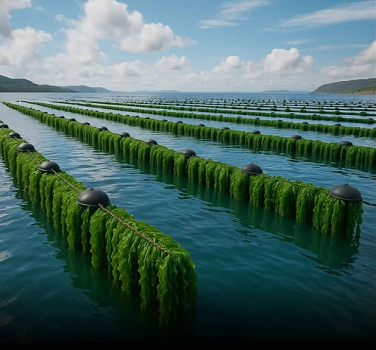Norway, a nation long defined by its relationship with the sea, is now at the forefront of a groundbreaking initiative that could play a crucial role in the global fight against climate change. In a series of pioneering ocean farms, the country is cultivating seaweed at an industrial scale, not just for food and products but for its extraordinary ability to clean the ocean and capture carbon at a rate faster than terrestrial forests.
Seaweed, or macroalgae, is an unsung hero of the marine world. It requires no land, no fresh water, and no fertilizers to grow. Instead, it thrives on sunlight and the nutrients already in the ocean. Through photosynthesis, it absorbs vast amounts of dissolved carbon dioxide from seawater. This process has a dual benefit: it locks away carbon in its biomass and helps to combat ocean acidification.
According to the UN and a number of scientific studies, seaweed can sequester carbon up to 20 times more efficiently per hectare than land-based forests. When seaweed is harvested, this carbon can be used in various sustainable products, or the biomass can be sunk to the deep ocean, where the carbon is sequestered for centuries.
A number of Norwegian companies, including Arctic Seaweed and Lofoten Blue Harvest, are leading the charge. These firms are developing innovative technologies for large-scale cultivation, including automated seeding and harvesting systems designed to withstand the harsh conditions of the open ocean. These farms also provide significant co-benefits to the marine ecosystem, creating new habitats for a diversity of marine life and helping to filter out excess nutrients from agricultural runoff, which can cause harmful algal blooms.
The Norwegian government, in partnership with research institutions and private companies, is actively investing in this new industry. Pilot projects are underway to explore how seaweed can be converted into everything from sustainable animal feed—which has been shown to dramatically reduce methane emissions from cattle—to bioplastics and biofuels.
This “blue-carbon” industry is not only a powerful tool for climate mitigation but also a way to diversify Norway’s economy. With a vast coastline and deep-rooted maritime expertise, the country is perfectly positioned to become a global leader in what many experts are calling a “seaweed revolution.”







